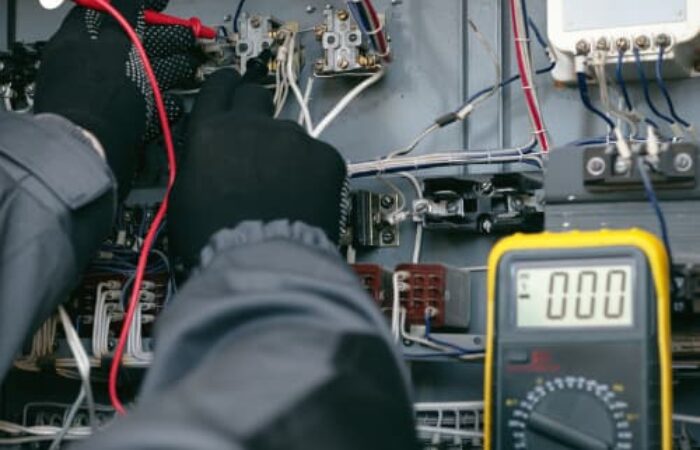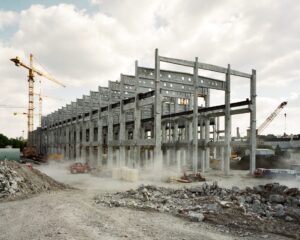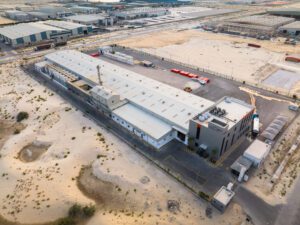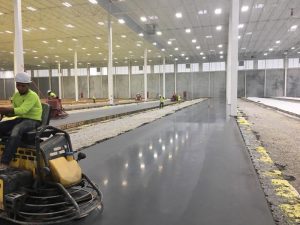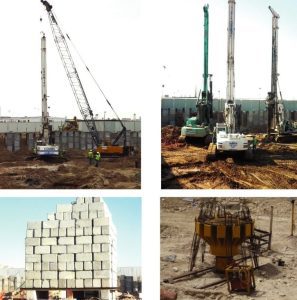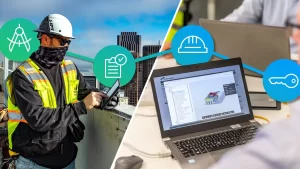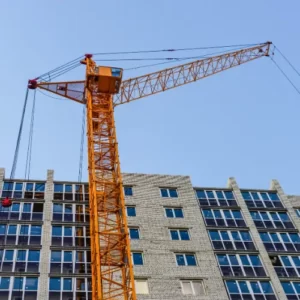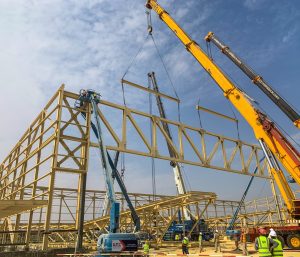In the dynamic world of construction, the role of electrical works is pivotal. From lighting up spaces to powering essential systems, electrical installations are the lifeblood of modern infrastructure. This article delves into the intricacies of electrical works in construction, exploring the planning, installation, and safety considerations that shape these crucial undertakings.
1. Understanding Electrical System Design:
- Conceptualizing Power Needs
- Load Analysis and Distribution Planning
- Incorporating Sustainable and Energy-Efficient Solutions
2. Blueprint to Reality: The Installation Process:
- Wiring and Conduit Installation
- Electrical Panel Setup
- Fixture and Appliance Integration
- Smart Home Systems Implementation
3. Safety First: Ensuring Code Compliance:
- National Electrical Code (NEC) Guidelines
- Fire Safety Measures
- Grounding and Bonding Best Practices
- Emergency Power Systems
Contact with Dtc Contracting Company .
4. The Role of Technology:
- Incorporating Renewable Energy Sources
- Advancements in Smart Building Technologies
- Internet of Things (IoT) Integration
5. Challenges in Electrical Works:
- Mitigating Voltage Fluctuations
- Overcoming Space Constraints
- Addressing Environmental Factors
6. Collaboration and Coordination:
- Interdisciplinary Collaboration with Architects and Engineers
- Project Management for Seamless Integration
- Communication Protocols for Effective Coordination
7. Inspection and Maintenance:
- Regular Inspections for Safety Compliance
- Predictive Maintenance Technologies
- Upgrading Electrical Systems for Longevity
8. Budgeting and Cost Considerations:
- Estimating Electrical Costs
- Value Engineering for Efficiency
- Balancing Quality and Budgetary Constraints
Electrical works in construction demand a blend of technical expertise, creativity, and adherence to safety standards. As technology continues to advance, the integration of smart solutions and sustainable practices is becoming increasingly important. By understanding the nuances of electrical systems in construction, professionals can contribute to the creation of efficient, safe, and technologically advanced buildings that meet the needs of the present and future.
9. Training and Certification for Electricians:
- Importance of Proper Training
- Staying Updated with Industry Standards
- Certifications and Licensing Requirements
- Continuous Professional Development
10. Green Building Initiatives:
- Integrating Energy-Efficient Lighting
- Utilizing Renewable Energy Sources
- Sustainable Electrical Practices
- LEED Certification and Its Impact
11. Case Studies: Real-world Applications:
- Highlighting Successful Electrical Installations
- Learning from Challenges and Solutions
- Showcasing Innovative Technologies
12. Future Trends in Electrical Construction:
- Electrification of Transportation
- Advanced Energy Storage Solutions
- Artificial Intelligence in Electrical Systems
- Evolution of Building Energy Management Systems
13. International Standards and Global Practices:
- Harmonizing Electrical Codes Globally
- Learning from Global Best Practices
- Cross-Border Collaboration in Electrical Construction
Contact with Dtc Contracting Company .
14. Public Safety and Community Impact:
- Emergency Response Planning
- Minimizing Electrical Hazards for the Public
- Community Engagement in Electrical Infrastructure Projects
15. Ethical Considerations in Electrical Works:
- Transparency in Project Communication
- Ethical Sourcing of Electrical Components
- Ensuring Fair Labor Practices
The landscape of electrical works in construction is ever-evolving, driven by technological advancements, sustainability goals, and the need for safety and efficiency. As professionals in the field continue to innovate and collaborate, the future of electrical construction promises smarter, greener, and more resilient infrastructure. By embracing the challenges and opportunities in this dynamic industry, we pave the way for a brighter and more connected future.
16. Regulatory Compliance and Permitting:
- Navigating Local Building Codes
- Securing Necessary Permits
- Compliance with Occupational Safety and Health Administration (OSHA) Regulations
17. Disaster Preparedness and Resilience:
- Designing Electrical Systems for Resilience
- Emergency Backup Power Systems
- Mitigating Risks in Seismic Zones and Extreme Weather Conditions
18. Building Information Modeling (BIM) Integration:
- Enhancing Collaboration Through BIM
- 3D Modeling for Electrical Layouts
- Clash Detection and Resolution
19. Customization for Diverse Project Types:
- Tailoring Electrical Designs for Residential Projects
- Commercial and Industrial Electrical Considerations
- Specialized Needs for Healthcare and Educational Facilities
20. Public-Private Partnerships (PPPs) in Electrical Infrastructure:
- Collaborative Financing Models
- Government and Private Sector Collaboration
- Ensuring Public Benefit in Infrastructure Development
21. Cybersecurity in Electrical Systems:
- Protecting Smart Systems from Cyber Threats
- Data Privacy Concerns in Smart Buildings
- Incorporating Cybersecurity Measures in Electrical Design
Contact with Dtc Contracting Company .
22. Post-Occupancy Monitoring and Optimization:
- Utilizing Data Analytics for Performance Monitoring
- Continuous Improvement Strategies
- User Feedback and Adaptation
23. Global Perspectives on Electrical Works:
- Comparing Electrical Standards Worldwide
- Learning from International Construction Projects
- Cultural and Environmental Sensitivity in Electrical Designs
24. The Human Factor in Electrical Construction:
- Training and Empowering Electrical Workforce
- Human-Centric Design Principles
- Fostering a Culture of Safety and Innovation
Conclusion:
As we navigate the complex realm of electrical works in construction, it becomes evident that this field is not just about wires and circuits; it’s about creating sustainable, safe, and technologically advanced environments for people. By embracing the challenges and opportunities in this dynamic industry, professionals contribute to the evolution of our built environment, ensuring that it meets the needs of society today and lays the groundwork for a resilient and connected future.

